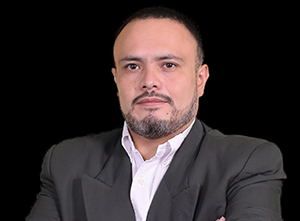Bolivia: the patron's dream come true

By: Hugo Marcelo Balderrama - 2022/04/12
Share:It was June 16, 1976, in the municipality of Itagüí, Pablo Emilio Escobar Gaviria and his cousin Gustavo de Jesús Gaviria Rivero were arrested with 29 kilos of cocaine. Detectives Luis Fernando Vasco Urquijo and Jesús Hernández Patiño, belonging to the DAS, are in charge of carrying out the operation.
Almost three months later, with a huge bribe involved, Pablo and Gustavo regain their freedom. But they couldn't get rid of Vasco and Hernández. The agents did not have the slightest intention of doing justice, but rather of extorting money from the young drug traffickers. The squeeze was so strong that Pablo Escobar decided to kill them. Objective that was fulfilled on March 30, 1977.
In her book, The True Pablo, Blood, Betrayal and Death, Astrid Legarda, a Colombian journalist, recounts that on that night in March 1977 Pablo Escobar made two decisions that would change the destiny of Colombia and all of South America. First, he will never set foot in jail again. And second, to become the most important bandit in the world.
The boss set up a structure whose cornerstone was made up of his own fleet of planes, some to serve the drug routes and others for his personal use. In a very short time the money starts pouring in. Almost at the same time as banknotes, that kind of opportunistic bugs that is quite abundant in our countries appeared: politicians.
With the extraordinary bonanza of cocaine money and driven by the enormous number of politicians who visited him, from simple councilors and deputies, to senators and great representatives to the Chamber, Pablo Escobar founded a political party called Liberal Renovation in Antioquia.
Taking advantage of his natural talent as a speaker, every time Escobar took the microphone, he gave them a rather simple message, but one that was attractive to his countrymen: “vote for me, and I'll give you money.” His strategy was successful, because in 1982 he managed to be elected substitute congressman within the Colombian Parliament.
Although his time in Parliament was brief, he would leave an important lesson for future drug traffickers. Since that election showed that bandits can come to power. But then they must set up narco-states, if they want to stay at the top. Democracy must be exploited and then destroyed. That brings us to the next part of the article: Bolivia and the Sao Paulo Forum.
After the Soviet collapse, the militants of the Latin American left -especially Fidel Castro- needed new speeches. They replace Karl Marx with thinkers like Ernesto Laclau, Chantal Mouffe or the Bolivian Álvaro García Linera. His enemies would be the same as always (the free market, democracy, the family and the Christian faith). But they would no longer use the class struggle as an instrument of subversion, but rather identity politics. And the narcodollars would replace the subsidies granted by the USSR. It is in this context that the figure of Evo Morales emerges in the country.
.
Supported by international progressivism, indoctrinated by several Argentine and American NGOs, financed by drug traffickers and militarily supported by the Cuban dictatorship, Morales, since the dawn of the 90s, under the euphemism of fighting against the new Yankee imperialist «intervention», he started a war against Bolivian democracy, cruelly assassinated law enforcement officials, and destroyed the tranquility of Bolivian citizens. In October 2003, with the resignation of Gonzalo Sánchez de Lozada, his conspiracies reached their goal. The Republic of Bolivia died there. The plurinational narco-state was born. Evo had fulfilled the dream of Pablo Escobar.
The writer Manuel Morales Álvarez, in his book Narcovinculos, shows the way in which -especially since the arrival of the Movement for Socialism to power- bands of Peruvian, Colombian, Brazilian and Venezuelan hit men operate in Bolivia with total impunity, in addition to having with judicial and police support. His job is to “clean up” traitors and loudmouths. They are also used as mercenaries to punish the drug dealers (policemen and civilians who steal drugs from the cartels).
At the beginning of 2022, the capture of Omar Rojas, baptized by the media as the Bolivian Pablo Escobar, took place, who was taken to cells by the DEA for a process in the United States on charges of international trafficking of controlled substances. Of the names linked to Rojas, the police charges of Colonel Maximiliano Dávila stand out, who was apprehended on January 22 at the Villazón border crossing in Potosí.
Dávila was national director of Police Intelligence and then head of the Special Force to Fight Drug Trafficking (FELCN) during the final period of Evo Morales as president in 2019.
But the Dávila case was only the beginning of the war between cartels that seek to consolidate themselves in power, which to date has been going on for several months and a large number of detainees. So much so that Evo Morales himself called a press conference at the Governor's Office of the department of Cochabamba to denounce drug trafficking activity in the Chapare. But the unusual thing is that Morales accused government officials of covering up illicit activities. In other words, the coca grower leader pointed out the members of his own party as cover-ups, including Minister Eduardo del Castillo, who are now in the executive.
For many, all of this is nothing more than a strategy to distract public opinion about the economic crisis and the imminent failure of the El Silala issue. However, everything seems to indicate that Morales is very close to withdrawing his support from Arce Catacora. If this situation were to occur, the country would enter a new period of instability.
You hurt Bolivia!
“The opinions published here are the sole responsibility of their author.”